Whether you're just starting with Python programming or aiming to enhance your skills, this program is designed to equip you with the essential techniques and strategies to thrive in today's dynamic marketplace.
Software Engineering Course With Python Programming Language
Time before the price increases:

Why You Should Take This Course
Software Engineering Is One Of The Most In Demand Professions In The World Today
The average salary for a Software Engineer ranges from around $80,000 to $120,000 per year. In major tech hubs like San Francisco, New York, or Seattle, salaries can be higher, often exceeding $130,000. (N207,000,000.00).
With This training, You Will Have All The Skills, Knowledge, Techniques And Tools That Will Make It Super Easy For You To Get Jobs as a Software Engineer Guaranteed .

Why Choose SkillBoost?
Experts-Led Training + Real Software Project
Job Guaranteed or Get a 100% Refund
Physical Or Remote Paid Internship with Top Rated Company In Nigeria (Optional)
Professional Certificate of Completion
Job Alerts, Mentorship And Career Guidance
Become AI Powered Sales Professional
Course Outline
Actively enhance your software engineering skills by engaging in Python programming and working on real-world projects. This hands-on experience will help you solidify your abilities and adapt your strategies effectively.
Module 1: Course Introduction, Introduction to software engineering and programming
This course provides an overview of the fundamental concepts and practices in software engineering and programming. It is designed to introduce students to the principles of software development, including the software development lifecycle, key programming paradigms, and best practices in coding. The course covers both theoretical and practical aspects, ensuring that students gain a solid foundation in writing efficient, reliable, and maintainable software.
Module 2: Python Setup, What are Variables in Programming
1. Install Python on your system with a step-by-step guide.
2. Set up your IDE to optimize your coding environment.
3. Verify that Python is correctly installed and ready to use.
4. Learn what variables are and why they matter in programming.
5. Name your variables following best practices for clarity.
6. Explore how variables store different types of data.
7. Practice assigning values to variables with practical examples.
Module 3: How to Write Programs in Python, Data Types, Data Structures
1. Learn the basics of writing Python programs.
2. Understand how to create and run Python scripts.
3. Explore the different data types available in Python.
4. Practice using strings, integers, floats, and booleans.
5. Discover how to work with lists, tuples, and dictionaries.
6. Learn to store and organize data using data structures.
7. Implement data structures in practical programming scenarios.
Module 4: If statements and Loops, Arrays, Input Statement and Comments
1. Master the use of if statements to control program flow.
2. Practice writing loops to automate repetitive tasks.
3. Understand how to use arrays to store collections of data.
4. Learn how to gather user input with input statements.
5. Implement comments to document and clarify your code.
6. Explore practical examples of combining these elements in programs.
Module 5: Built-in & User Defined Functions, Modules, pip, Try-Except Block, Datetime.
1. Explore Python’s built-in functions and their uses.
2. Learn to create and use your own user-defined functions.
3. Understand how to import and use modules to extend functionality.
4. Get familiar with pip for managing Python packages.
5. Implement try-except blocks to handle exceptions and errors.
6. Work with the datetime module for date and time operations.
Module 6: Operations in Python, File Handling in Python, Crud Operations in Python
1. Learn how to perform basic operations in Python, including arithmetic and logical operations.
2. Discover methods for reading from and writing to files in Python.
3. Practice handling different file types and managing file paths.
4. Implement CRUD (Create, Read, Update, Delete) operations to manage data.
5. Apply CRUD operations in practical scenarios to manipulate files and data.
Module 7: Real World Programs, Object Oriented Programming(oop), Data Visualization
1. Develop real-world Python programs to apply your skills in practical scenarios.
2. Understand the principles of Object-Oriented Programming (OOP) and its benefits.
3. Learn to create and use classes and objects in Python.
4. Explore various data visualization techniques to represent data graphically.
5. Implement libraries and tools for effective data visualization.
Module 8: GUI in Python, Software Development Life Cycles
1. Learn to create graphical user interfaces (GUIs) using Python libraries.
2. Explore popular libraries for building GUIs, such as Tkinter and PyQt.
3. Understand the stages of the Software Development Life Cycle (SDLC).
4. Apply SDLC principles to plan, design, develop, and maintain software projects.
5. Practice integrating GUI development with SDLC processes for effective project management.
Module 9: Web Development and Mobile Apps Development
1. Discover the basics of web development using Python frameworks like Flask or Django.
2. Learn to build and deploy web applications with Python.
3. Explore mobile app development with Python tools and frameworks.
4. Understand how to create cross-platform mobile apps using frameworks such as Kivy or BeeWare.
5. Implement practical projects to combine web and mobile app development skills.
Module 10: Here are Ten Final Project
1. Build a personal budgeting application to manage finances.
2. Create a to-do list app with features for task management.
3. Develop a simple game using Python’s graphical libraries.
4. Implement a weather forecast app using external APIs.
5. Design a blog platform with user authentication and content management.
6. Construct a chat application with real-time messaging.
7. Develop a data analysis tool to visualize datasets.
8. Create a task automation script to streamline repetitive tasks.
9. Build a web scraper to extract data from websites.
10. Design an interactive quiz app to test user knowledge on various topics.
Training Details
No need to quit your job or school, you can enhance your professional and earning potential with our weekday, weekend and online sessions.
Venues
Venue 1: Port-Harcourt: Fonte House, 1 Temple Ejekwu Close, First Artillery Junction, Aba Road, Port Harcourt, Rivers State.
Venue 2: Ibadan: 4, Obe Street, Beside BOVAS Filling Station, New Bodija, Ibadan, Oyo State, Nigeria.
Venue 3: Online
Training Fee
Early Bird*: Pay N150,000 Instead of N200,000
Port Harcourt Training
Days: Mon., Wed., & Fri.
Time: 10 AM - 1 PM
Duration: 3 Days
Start Date: 5th August 2024
Live Online Class
Days: Mon., Wed., & Fri.
Time: 7PM - 9PM
Duration: 5 Days
Start Date: 12th August 2024
Ibadan (Physical) Traning
Saturday Time: 1PM-4PM
Sunday Time: 1PM-4PM
Duration: 3 Days
Start Date: 24th August 2024
Meet Your Instructors & Mentors
To deliver excellent training, we work with the very best talents.
Testimonials
99% of our previous students rated us 5 stars.
Don’t take our word, just read what some of them have to say.
[grw id=27873]
Frequently Asked Questions
What is Python, and why should I learn it
Python is a versatile, high-level programming language known for its simplicity and readability. It’s widely used in various fields such as web development, data analysis, artificial intelligence, automation, and more. Learning Python opens up opportunities in diverse industries and makes it easier to transition into other programming languages.
Do I need any prior programming experience to learn Python?
Do I need any prior programming experience to learn Python?
How long will it take to learn Python?
- The time it takes to learn Python depends on your background, dedication, and the depth of knowledge you want to achieve. Typically, beginners can learn the basics in 4-6 weeks with consistent practice. Mastery of more advanced topics may take several months.
What tools do I need to get started with Python?
To get started, you’ll need to install Python on your computer. You can use an Integrated Development Environment (IDE) like PyCharm, VSCode, or Jupyter Notebook. These tools provide a user-friendly interface to write, test, and debug your Python code.
What is the best way to learn Python?
The best way to learn Python is through hands-on practice. Start with simple exercises, gradually progress to more complex projects, and try to solve real-world problems. Online tutorials, coding challenges, and community forums are great resources to enhance your learning.
What are some common challenges beginners face when learning Python?
- Common challenges include understanding abstract concepts like object-oriented programming, debugging errors, and managing time effectively for practice. Staying patient, practicing consistently, and seeking help from communities can help overcome these challenges.
Can I learn Python online, or should I attend a course?
- Python can be learned both online and through formal courses. Online platforms like Coursera, edX, and freeCodeCamp offer excellent resources. However, attending a structured course with a mentor or instructor can provide additional guidance and support.
What are some good projects for beginners?
Beginners can start with projects like building a calculator, creating a simple to-do list app, automating tasks like file organization, or developing basic web scraping scripts. These projects reinforce fundamental concepts and provide practical experience.
How do I debug my Python code?
- Debugging involves identifying and fixing errors in your code. You can use print statements to track variable values or use built-in debugging tools in IDEs like PyCharm. Reading error messages carefully and understanding what they mean is also crucial.
What are the most important Python libraries I should learn?
- Some essential Python libraries include:
- NumPy and Pandas for data manipulation.
- Matplotlib and Seaborn for data visualization.
- Flask or Django for web development.
- Requests for making HTTP requests.
- BeautifulSoup for web scraping.
How can I apply Python skills in real-world scenarios?
- Python skills can be applied in various fields:
- Web Development: Building websites and web applications.
- Data Analysis: Processing and analyzing large datasets.
- Automation: Automating repetitive tasks like file handling.
- AI and Machine Learning: Developing algorithms and models.
- Scripting: Writing scripts to automate routine tasks.
What should I do if I get stuck while learning Python?
- If you get stuck, try the following:
- Break down the problem: Simplify the issue and tackle it step by step.
- Search online: Use resources like Stack Overflow, Google, or Python documentation.
- Ask for help: Engage with online communities, forums, or study groups.
- Take a break: Sometimes, stepping away from the problem can help you see it more clearly.
How do I keep improving my Python skills after the course?
- To keep improving, continue working on projects, contribute to open-source, participate in coding challenges, and stay updated with new Python developments. Regularly practicing and exploring advanced topics will deepen your understanding.
Can Python be used for mobile app development?
Yes, Python can be used for mobile app development, though it’s not as common as languages like Swift (for iOS) or Kotlin (for Android). Frameworks like Kivy and BeeWare allow you to develop mobile applications with Python.
Is Python suitable for competitive programming?
- Python is suitable for competitive programming due to its concise syntax and powerful libraries. However, it may not be the fastest language for performance-intensive problems. It’s often used alongside other languages like C++ or Java in competitions.
© 2024 SkillBoost Limited

